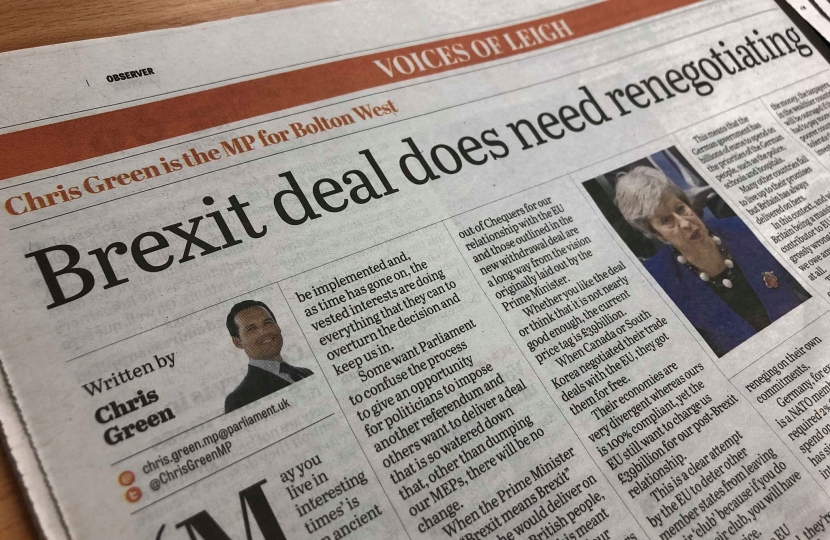
“May you live in interesting times” is an ancient Chinese curse and what interesting times we are living in. The choice offered in the 2016 EU referendum was an opportunity for the British people to have their say on the biggest issue in generations. The result was a decisive decision to leave the European Union with a majority of well over a million people.
Since then, the political class has been coming to terms with how the British people’s decision should be implemented and, as time has gone on, the vested interests are doing everything that they can to overturn the decision and keep us in.
Some want Parliament to confuse the process to give an opportunity for politicians to impose another referendum and others want to deliver a deal that is so watered down that, other than dumping our MEPs, there will be no change.
When the Prime Minister said “Brexit means Brexit” and that she would deliver on the will of the British people, I always thought this meant taking back control of our money, our laws, our borders and our trade. This is, after all, what the Prime Minister has said in numerous speeches and this is what most people, whether they voted to Leave or Remain would expect to happen.
The proposals that came out of Chequers for our relationship with the EU and those outlined in the new withdrawal deal are a long way from the vision laid out by the Prime Minister.
Whether you like the deal or think that it is not nearly good enough, the current price tag is £39billion.
When Canada or South Korea negotiated their trade deals with the EU they got them for free. Their economies are very divergent whereas ours is 100% compliant, yet the EU still want to charge us £39billion for our post-Brexit relationship. This is a clear attempt by the EU to deter other member states from leaving their ‘club’ because if you do leave their club, you will have to pay the price.
Not only is the EU charging us for a deal, they’re also taking advantage of our good will despite their member states all too often reneging on their own commitments. Germany, for example, is a NATO member with a required 2% GDP minimum spend on defence and has signed up to the international foreign aid target of 0.7% GPD. However, they are only spending 1.2% of GDP on defence and 0.41% on foreign aid. This means that the German government has billions of euros to spend on the priorities of the German people, such as the police, schools and hospitals. Many other countries fail to live up to their promises but Britain has always delivered on hers.
In this context, and with Britain being a massive net contributor to EU funds, it is grossly wrong to believe that we owe any money to the EU at all. The demand for £39billion is offensive in itself but it also reveals how much the EU needs your money. The EU is in a mess financially as well as politically and losing the British taxpayers contribution every year will cost them dearly which means that we have the strongest of bargaining chips.
If the EU does not get our £39bn, they will not borrow the money, the taxpayers in the wealthier countries will be outraged if they had to pay more and the poorer countries will not tolerate the EU cutting their investment projects.
In the negotiations, Britain has a strong hand and all of the problems caused by a bad deal would apply to the EU just as much, if not more than it does to the UK. We should be comfortable with World Trade Organisation rules which is how we trade with most of the world, including the United States. We should expect a deal at least as good as the one that exists between Canada and the EU. I would go as far as to say that for £39 billion worth of British taxpayer’s money, we should be demanding the best trade deal ever. What is good for us, is just as good for the EU and we still have time to get a great deal.

